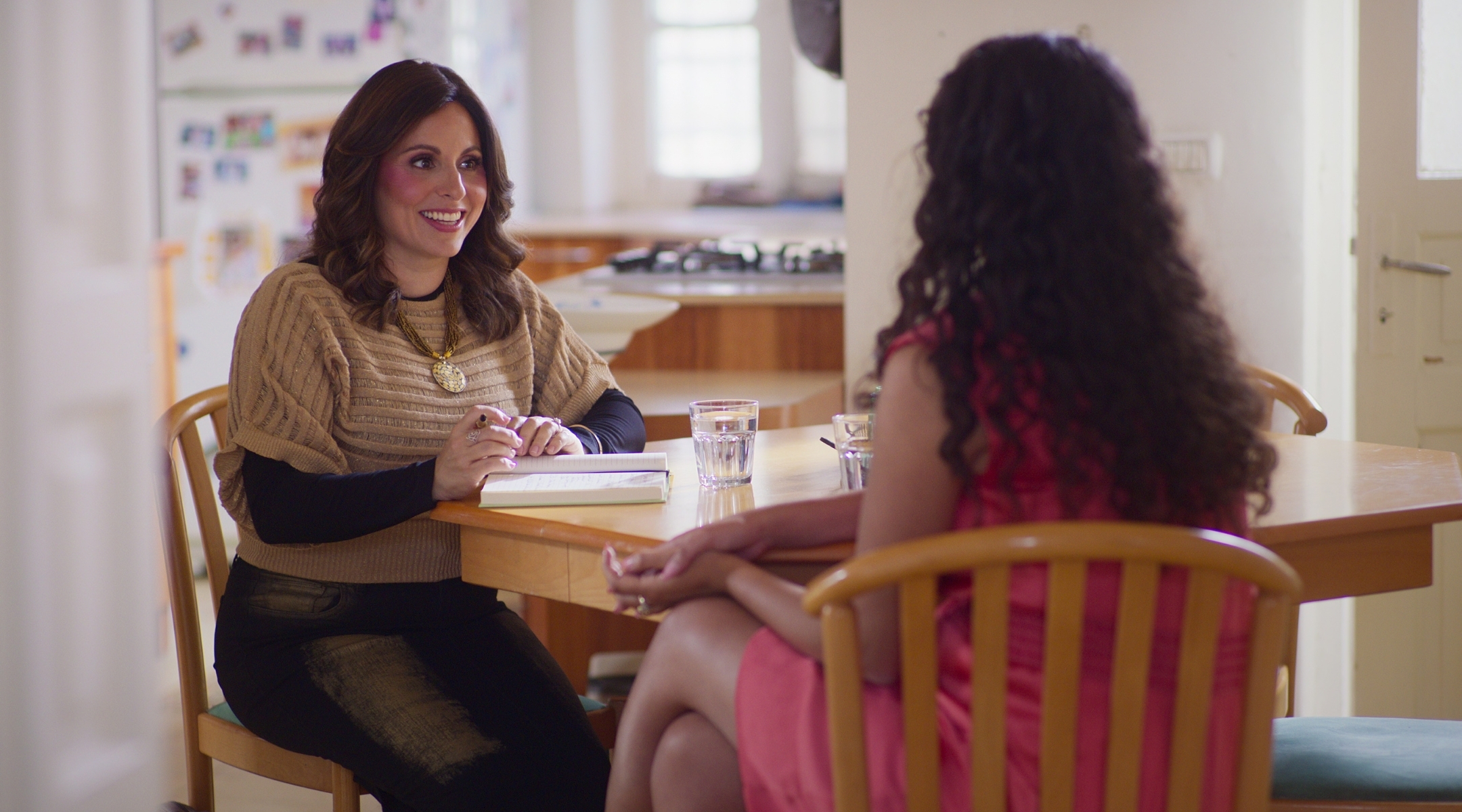It’s a date: Netflix’s ‘Jewish Matchmaking’ debuts May 3
‘Finding your person is the hardest thing to do in the entire world,’ matchmaker Aleeza Ben Shalom says in the show’s trailer. ‘And that’s where I come in.’

“Jewish Matchmaking” follows Jewish singles in the U.S. and Israel as they search for their soulmates with the help of a Jewish matchmaker. (Netflix)
(JTA) — A matchmaker who says she has successfully paired 200 Jewish couples is the star of “Jewish Matchmaking,” a Netflix series that is set to start streaming May 3.
Netflix announced the series, a spinoff of its wildly successful “Indian Matchmaking” show, nearly a year ago. Now, new details that the streaming giant released on Thursday reveal that it will take place in both the United States and Israel, and will feature people from a variety of Jewish backgrounds.
Their guide will be Aleeza Ben Shalom, an Orthodox Jewish dating coach with a decade of experience who was based in the Philadelphia area and moved to Israel two years ago.
“Finding your person is the hardest thing to do in the entire world,” Ben Shalom says in the show’s trailer, which dropped Thursday. “And that’s where I come in.”
Netflix is keeping most details about the show secret until closer to the launch date, but the trailer shows one man who is part of the process — “I don’t want to have to explain to her why ‘Curb Your Enthusiasm’ is funny,” he explains, after being asked why he is looking for a matchmaker — and several women. Multiple cast members posted about their involvement on social media on Thursday, including comedian and disability activist Pamela Rae Schuller and Miami-based marketing executive Dani Bergman.
Formal matchmaking is common in the haredi Orthodox world, where many couples pair off through a formal and speedy process that has been depicted in shows such as “Shtisel,” which also streams on Netflix. Other Jews date and marry on their own, and a slew of dating services and apps have catered to matching Jews with each other.
“In today’s world of modern love, we are used to turning to technology to find love,” Ben Shalom told E! News. “We download apps and we upload profiles. We swipe left or swipe right. And yet, somehow finding ‘the one’ has never been harder.”
“Jewish Matchmaking” will run for eight 30-minute episodes, featuring a diverse set of couplings, from Orthodox singles who observe the rules of negiah — the prohibition on touching before marriage — to Reform and secular U.S. Jews who, data show, are statistically likely to marry people who are not Jewish.
The show — whose title is translated into Hebrew as “Modern Matchmaking” — is modeled on “Indian Matchmaking,” now entering its third season, which also focuses on a professional matchmaker and people looking for love. While the show has been popular with audiences, it has also drawn criticism for reinforcing religious and caste segregation; no couples from its first season remain together.
Ben Shalom, who says she grew up secular and later became more traditionally observant, works exclusively with Jewish singles. This week, she launched a podcast called “The Yentas” with two other Jewish matchmakers affiliated with Tribe12, a Philadelphia organization serving Jewish young adults that includes a matchmaking service.
“We know it can carry a negative gossipy connotation,” they say in the first episode about the name of their show. “Maybe you saw ‘Fiddler on the Roof’ where the word is associated with being a busybody, somebody who wants to make matches but doesn’t have your best interest at heart. We are not that. We are love professionals.”
This article originally appeared on JTA.org.
A message from our CEO & publisher Rachel Fishman Feddersen
I hope you appreciated this article. Before you go, I’d like to ask you to please support the Forward’s award-winning, nonprofit journalism during this critical time.
We’ve set a goal to raise $260,000 by December 31. That’s an ambitious goal, but one that will give us the resources we need to invest in the high quality news, opinion, analysis and cultural coverage that isn’t available anywhere else.
If you feel inspired to make an impact, now is the time to give something back. Join us as a member at your most generous level.
— Rachel Fishman Feddersen, Publisher and CEO